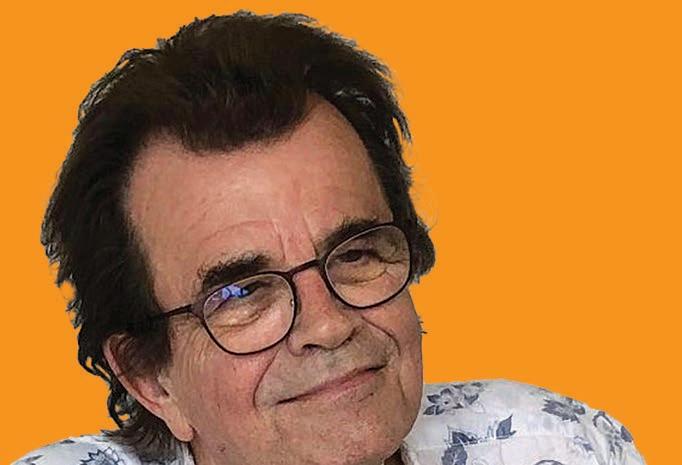
11 minute read
Paul Hopkins
The Fact OfThe Matter

Advertisement

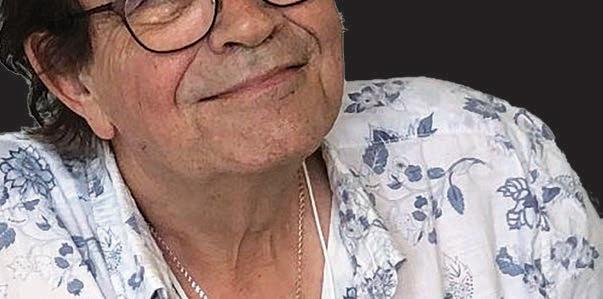
PAUL HOPKINS Bank on it! My money’s on a cashless society
When I left school, I wanted to go to college which I did. Initially though, to appease my father, I went for job interviews with Aer Lingus, the Civil Service, and the banks. On the day of interview with Bank Of Ireland, at least three score of us were left in a school hall, freezing our socks o . I was the last called for interview. e interviewee was not much older than myself, full of his own importance, and reeked of Old Spice.
“Tell me, young man, why do you want to join our bank?”
“I don’t,” I said, my socks utterly frozen. “My father wants me to.”
Needless to say, I didn’t get that job.
I mention this only because, despite the backlash to the recent attempts at branch closures and the withdraw of cash services by AIB, the majority of people believe it’s only a matter of time before local services, including cash, are signi cantly curtailed. (AIB chief executive Colin Hunt has since said the bank moved “way too far and way too fast” in its proposal to remove cash services from 70 branches. at, given the backlash, the proposal should never have been made.) A new survey, commissioned by Credit Union Development Association (CUDA) shows 60% of people anticipate cash services will be removed in time, with just 6% believing banks will retain these services. -It’s likely inevitable that branches and those ATMs will go the way of that once held-esteemed member of the community, your local Bank Manager. ere are no longer bank managers in outlying branches, have not been for a decade or two. ose ‘in charge’ of what remain of branches have no clout nor say-so regarding overdrafts and such, but are rather a sort of customer liaison o cer where every two-bit standing order has to get the green light at HQ from someone who really doesn’t understand your circumstance, nor indeed has any desire to know you from Adam. You’re just a balance sheet. e banks do not want to see your ugly mug inside their premises. Please use the ATM outside or internet banking or anything but direct contact, and so there are fewer employees and they keep getting shunted around the remaining branches, for fear, God forbid, you just might get to know them and develop a rapport.
So much for we taxpayers bailing out the banks by billions and they in return being asked to once again consider the circumstances of the ordinary guy in the street in these straitened times. e doing away with ATMs kind of makes sense. We are increasingly becoming a cashless society. I don’t recall the last time I had cash in my pocket. My debit card is king. And, now, even taxis must, by law, accept card payments. e only downside for me has seen me circumventing the young woman who daily sits begging outside my local supermarket as I no longer carry the odd ver that I would regularly place in her hand, if only for her beautiful smile in return.
Meanwhile, residents in some rural areas have taken matters into their own hands, after BOI shut their branch, by persuading an ATM operator to provide a replacement machine. Furthermore, one community (in Co. Westmeath) has been instrumental in the move by a local businessman to buy the old branch and turn it into a community digital hub.
Finally, I am reminded of an old friend of mine back in those recessionary Eighties who went one night with his father for a pint in Skerries. It was a Monday, so only about a dozen were in the bar when my friend’s bank manager popped in, spotted my friend, and said to all and sundry: “Jaysus, I am surprised to see you in here of a Monday, given the state of your overdraft.”
He could have sued, of course, for slander but next day my friend went to his bank, and in front of said manager tore up his cheque book and told him in no uncertain terms what he could do with his bank. ereafter, like our fathers before us, he kept his money in small tin boxes at the back of the kitchen cabinet — one for the bills, one for the mortgage and one for the rainy day. I am strongly considering the same.
At least that way you only have yourself to argue with — should you need to allow for the upcoming economic emergency — and not some ine ectual, trumped-up bank clerk.

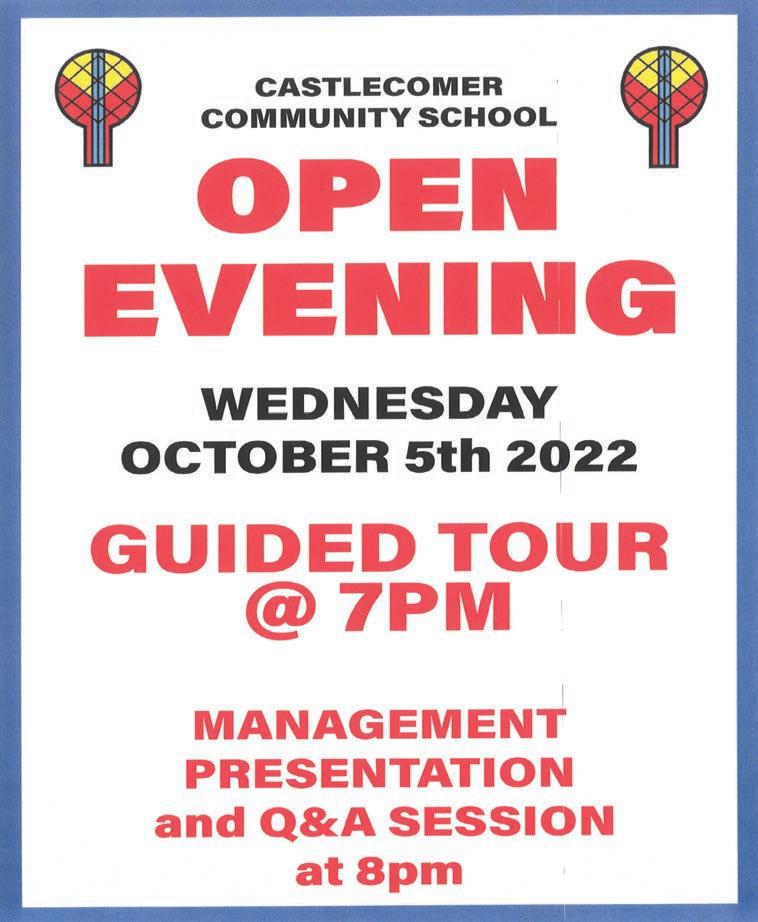

Our columnist's new book spanning two decades
e Kilkenny Observer columnist and opinion writer Paul Hopkins has just published a collection of his writings, culled from some three million words printed in numerous newspapers the past 20 years. Entitled A airs of the Heart ( And Other Writings), it is published by Monument Media and is available in selected bookstores and outlets and can also be ordered online at www.monumentmediapress.com at €14.99 plus postage.
From family life to far- ung travel, this treasure trove of stories and musings capture to story of a life well lived. Laughter, tears, hope and sadness — and love — all feature in this beautiful book of selected writings, that has something for everyone ... bringing together the very essence of what it means to be human.
Hopkins is an Irish journalist of nearly 50 years standing, in a career working for many national titles including e Irish Press, e Irish Independent, the Sunday Tribune and the Belfast Telegraph. He has variously worked as reporter, copy editor, senior editor, and award-winning newspaper designer.
He has covered three con ict zones, namely the Rhodesia/Zimbabwe war of the 1970s, undercover to report on the IRA ree in Colombia in 2003, and the Kenyan civil war in 2008.
His award-winning travel writing has taken him halfway around the world and he has also spent stints as music columnist and book critic. He is currently an opinion writer for a number of newspapers and a remote editor for a number of regional titles.
A father of three adult children, he lives in Skerries, north County Dublin.
Two in three people now worry about their pension

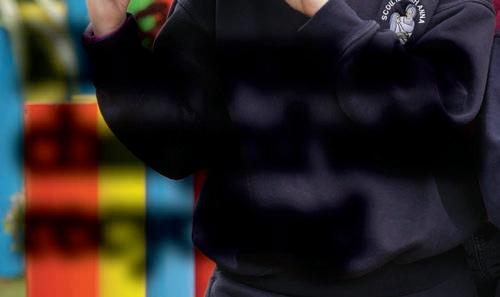
Two in three pension holders (67%) are worried they are not saving enough, while just a quarter (25%) are con dent that their pension will provide them with a comfortable retirement – leading to huge uncertainty surrounding the amount they’ll receive when they nish working. e new Bank of Ireland survey ndings revealed that, while the current cost of living challenges are front and centre of people’s minds, with 73% of people prioritising everyday spending over saving for their nancial futures, more than half of people (53%) would still advise their future selves to start saving as early as possible in order to prepare for a comfortable retirement.
Just 8% of people are still intent on living in the here and now and on spending the money they earn.
One of the clear challenges is the ability of people to understand what they need to do with pensions, with 82% of respondents claiming that their primary ask of their nancial advisers is to make retirement planning easier for them to understand. e RedC survey also uncovered that only 15% of those sampled are happy with the amount of money they are currently setting aside.
Bernard Walsh, Head of Pensions & Investments at Bank of Ireland, said: “Even saving little and often now can make a big di erence in the years to come, and the exibility that pensions provide in allowing people design and adapt them to suit their own needs (coupled with tax bene ts) always makes them a smart nancial choice. We have over 100 pension advisors who can discuss people’s longer term needs over the phone or in our branches, helping them to create a plan that suits their nancial wellbeing and lets them sleep at night.”
Only 37% of those surveyed know what income their current pension will give them upon retirement, with just 38% of those who do know what they’ll be getting actually happy with the projected amount. It all adds up to a worrying lack of clarity for many people who are clearly not happy with what their nancial situations will be once they stop working.
However, the survey also revealed that just over one fth of people (21%) have ever sought nancial advice in relation to their pension. To help people understand more about pensions and what they’ll need to do to achieve a comfortable retirement, Bank of Ireland’s Pension Pot free webinar series returns in September and October to bridge the knowledge gap about pensions and show how best to plan for the future.
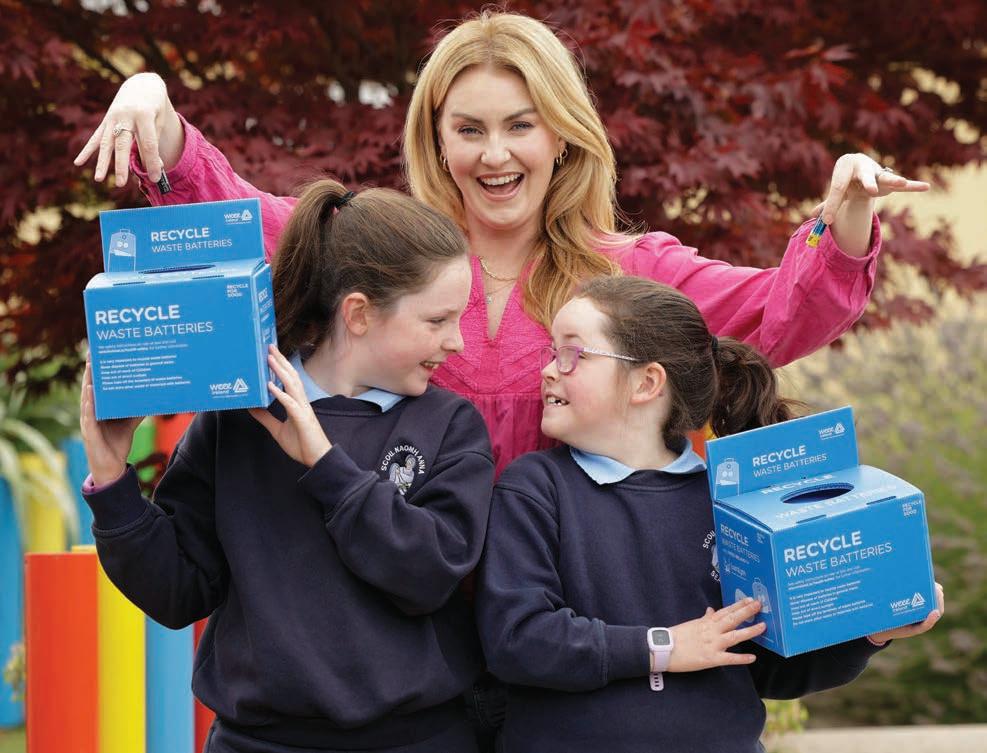
Charged! TV host Mairead Ronan with schoolgirls Cara, nine, and Elsie Jones, eight, whose sister Molly avails of LauraLynn's services
PHOTO: Conor McCabe Photography.
Kids, you are chargcd with recycling!
Kilkenny schools and students are being challenged to become battery recycling champions as part of a nationwide initiative which will also help children with life-limiting illnesses. e WEEE Ireland Schools Battery Recycling Competition returns this year, o ering schools the chance to win one of six €2,000 sports equipment vouchers.
Running from now to March 31, it is open to all primary and secondary schools which collect at least 10 full 5kg battery boxes in WEEE Ireland Battery Recycling counties.
Across all of Kilkenny, people recycled the equivalent of 13 AA batteries per person in 2021, below the national average of 15.
TV host Mairead Ronan was on hand to urge schools to get plugged into the countrywide drive, which helps raise funds for children’s hospice LauraLynn.
“ is helps raise funds and awareness for LauraLynn and all the wonderful children and families who rely on their services and support,” said the Ireland’s Fittest Family host at the launch at the LauraLynn campus in Leopardstown, Dublin.
“It's heart-warming to see school children getting involved in projects like this and helping other children while doing so. Best of luck and well done to all the schools taking part across the country.” e long running competition has a following of over 2,000 schools nationwide and encourages the involvement of teachers, families and wider communities to help students collect as many end-of-life batteries as possible.
When the competition last ran, schools across the country collectively diverted from land ll the equivalent of almost 1 million AA batteries.
“Many still don’t realise that binning batteries leads to a loss of really valuable resources that are increasingly in short supply as well as causing harm to the environment,” said Leo Donovan, CEO of WEEE Ireland.
*Interested schools can visit weeeireland.ie for more information
Local man dies when hit by car
Tributes are pouring in for a Kilkenny man who died recently on the M7 motorway during the weekend.
Brendan Fitzpatrick, from omastown in Co Kilkenny was killed after being struck by a car on the busy M7 motorway in Co Kildare.
e collision happened at around 4am on Saturday, Sepetember 24. e 24-year-old was pronounced dead at the scene.
He will be deeply missed by his family, Fiona, Eamon, and his sister Eimear.
It's la dolce vita... down Kilkenny way!
Representatives of a major Italian tour operator, Francorosso, together with 20 of its topproducing travel agents from Milan and Rome, have been exploring Kilkenny. e group are here as guests of Tourism Ireland and Fáilte Ireland. e aim of the travel agents’ visit is to familiarise them with Ireland and our superb tourism o ering, so that when they return home, they will be better informed and more enthusiastic than ever about Ireland, when advising their clients about planning and booking their holidays here. e group’s action-packed itinerary included Kilkenny Castle, Kilkenny Design Centre and the Medieval Mile Museum. Marcella Ercolini, Tourism Ireland’s Manager Italy, said: “We are delighted to invite this group of Italian travel agents to explore Kilkenny and elsewhere around Ireland this week. ere really is no substitute for being able to come here and experience what Ireland has to offer at rst-hand. Our aim is that when they return home, the travel agents will be even more enthusiastic about the destination, helping to secure a greater share of their business for Ireland in 2023 and beyond.
“Italy is an important market for tourism to Ireland and fact- nding visits like this are a key element of the work that Tourism Ireland undertakes with the important travel trade in Italy.”








